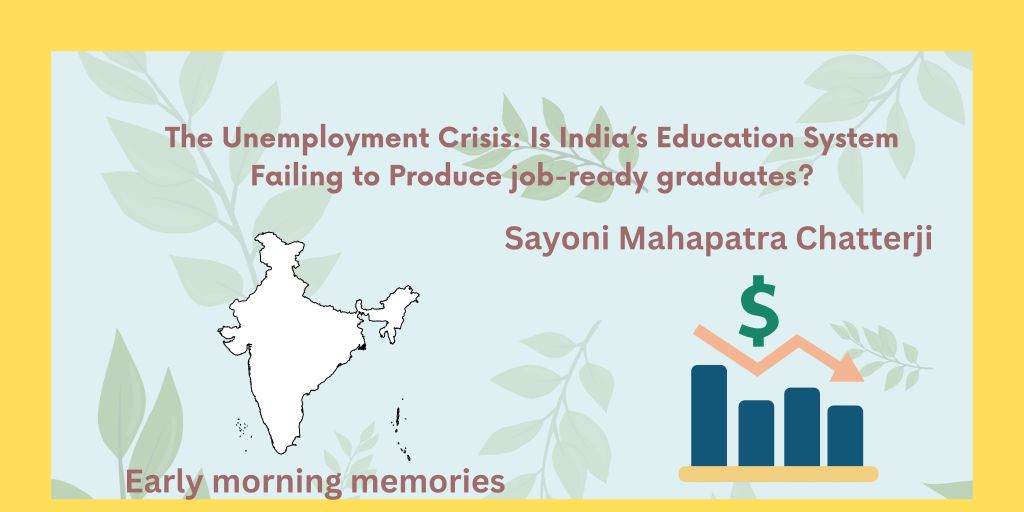“The first condition of education is being able to put someone to wholesome and meaningful work.” – John Ruskin

The Covid pandemic outbreak taught us indeed a lot about the ongoing life reality. People have finally found an answer to the question of whether or not our educational system creates skills that prepare students for jobs and the reality appears grim – no we do not. In reality, according to a recent Hindustan Times survey, an overwhelming majority of graduates in India’s major financial capitals –
Mumbai (89%), Kolkata (86%), and Hyderabad (84%) – believed they lacked the requisite practical experience, and blamed it on a lack of pragmatic education. So, as more Generation Z students prepare to graduate from traditional four-year colleges, the true state of the Indian education system, as well as its effect on employability and career success is becoming more exposed.
Let us know this from a story

Geeta was a 36-year-old woman who got married 12 years ago and works in a school called Okay let us call The confusing school. She has been working for over a decade now but during the covid pandemic outbreak, she was forced to adapt in the work from the home scenario as the situation of covid improved she was asked to leave the job. But why? Because the company suffered a loss. Do you know what is the common scenario here? There are a lot of Geeta in our society right now. Why such crises have happened even after people are so educated and qualified. It’s because of economy.
The lack of good networking skills, negligible professional experience, and insufficient care counseling at universities are to blame for the graduate’s deficiency in employability. Graduates in India are dissatisfied with their education system’s inability to provide them with the skills they need to succeed in the workplace. In fact, according to the same Hindustan Times survey, only 26% of those polled believed their education had a major impact on their interpersonal management skills – a crucial skill for work interviews and jobs.
Wrong theory and no practice
Now, widely popular, internships address one of Generation Z’s major grievances: a lack of practical knowledge and abilities. When it comes to securing a job, 91% of Generation believeves that professional connections and relationships are more important than grades. If they already have well-established networks, including family and friends, then traditional studying and actual learning take a backseat. The benefits of internships, whether paid or unpaid from helping you create a strong network and strengthening your resume to learning professional skills Shortrt internships that lead to full-time employment aren’t uncommon these days. Who knows, you may even discover your dream job or an undiscovered passion!
Besides developing our skills through internships, the following steps can be taken by universities and institutions alike to increase employability:
Introducing skill-oriented course curriculum specialization in all areas of education
Focusing on the applicability and practicality of the course content by using a demonstrative teaching methodology
Encouraging and providing students wi value-added certification along with conventional degrees
Providing global exposure and network opportunities by collaborating with various local and foreign institutions and universities
Lastly, by introducing stipend-based summer internships. The stipend can act as a reward for partaking in programs.
As a society, we must remember and work towards a future where education makes our children independent and aopenspen doors to better jobs and career possibilities. Further, We must ensure that our students have access to the best educational resources available to them, including a high-quality educational system that recognizes and addresses their career and personal growth needs. Our goal must be to build a more holistic, versatile, multidisciplinary education system that is better tailored to 21st-century needs and highlights each student’s specific talents, which they can apply later in their careers.


